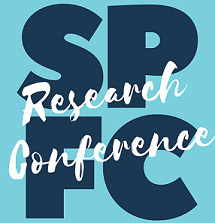Event Title
Political affiliation as a mediator between religiosity and implicit bias toward women in political leadership
Faculty Sponsor(s)
Paul Youngbin Kim, Ph.D.
Project Type
Completed quantitative research study
Primary Department
Psychology
Description
Applying the implicit bias framework, we examined the mediating role of political affiliation between religious commitment and gender bias towards political leaders. We predicted that religious commitment would be positively related to gender bias (Hypothesis 1) and that conservative political affiliation would mediate the relationship between religious commitment and gender bias, with positive relationships between religious commitment and conservative views, and conservative views and gender bias (Hypothesis 2). Participants were recruited from psychology courses at a religious, private university located in the Pacific Northwest region of the United States (N=68; 10 males, 56 females, Mage = 20.02, SD=2.57). Study measures were completed online via an online survey in Qualtrics. A simple regression analysis was conducted, and the results indicated that Hypothesis 1 was not supported. A bootstrapped mediation analysis was also conducted, revealing that the mediation relationship predicted in Hypothesis 2 was not supported, however the direct relationship between religious commitment and political affiliation was positive and significant. Exploratory analyses also revealed that the IAT d-score results negatively and significantly differed from zero, indicating gender bias in the unexpected direction. Our findings indicate the importance of conducting further research on the intersection between biases about race and gender.
Copyright Status
http://rightsstatements.org/vocab/InC/1.0/
Additional Rights Information
Copyright held by author(s).
Political affiliation as a mediator between religiosity and implicit bias toward women in political leadership
Applying the implicit bias framework, we examined the mediating role of political affiliation between religious commitment and gender bias towards political leaders. We predicted that religious commitment would be positively related to gender bias (Hypothesis 1) and that conservative political affiliation would mediate the relationship between religious commitment and gender bias, with positive relationships between religious commitment and conservative views, and conservative views and gender bias (Hypothesis 2). Participants were recruited from psychology courses at a religious, private university located in the Pacific Northwest region of the United States (N=68; 10 males, 56 females, Mage = 20.02, SD=2.57). Study measures were completed online via an online survey in Qualtrics. A simple regression analysis was conducted, and the results indicated that Hypothesis 1 was not supported. A bootstrapped mediation analysis was also conducted, revealing that the mediation relationship predicted in Hypothesis 2 was not supported, however the direct relationship between religious commitment and political affiliation was positive and significant. Exploratory analyses also revealed that the IAT d-score results negatively and significantly differed from zero, indicating gender bias in the unexpected direction. Our findings indicate the importance of conducting further research on the intersection between biases about race and gender.


